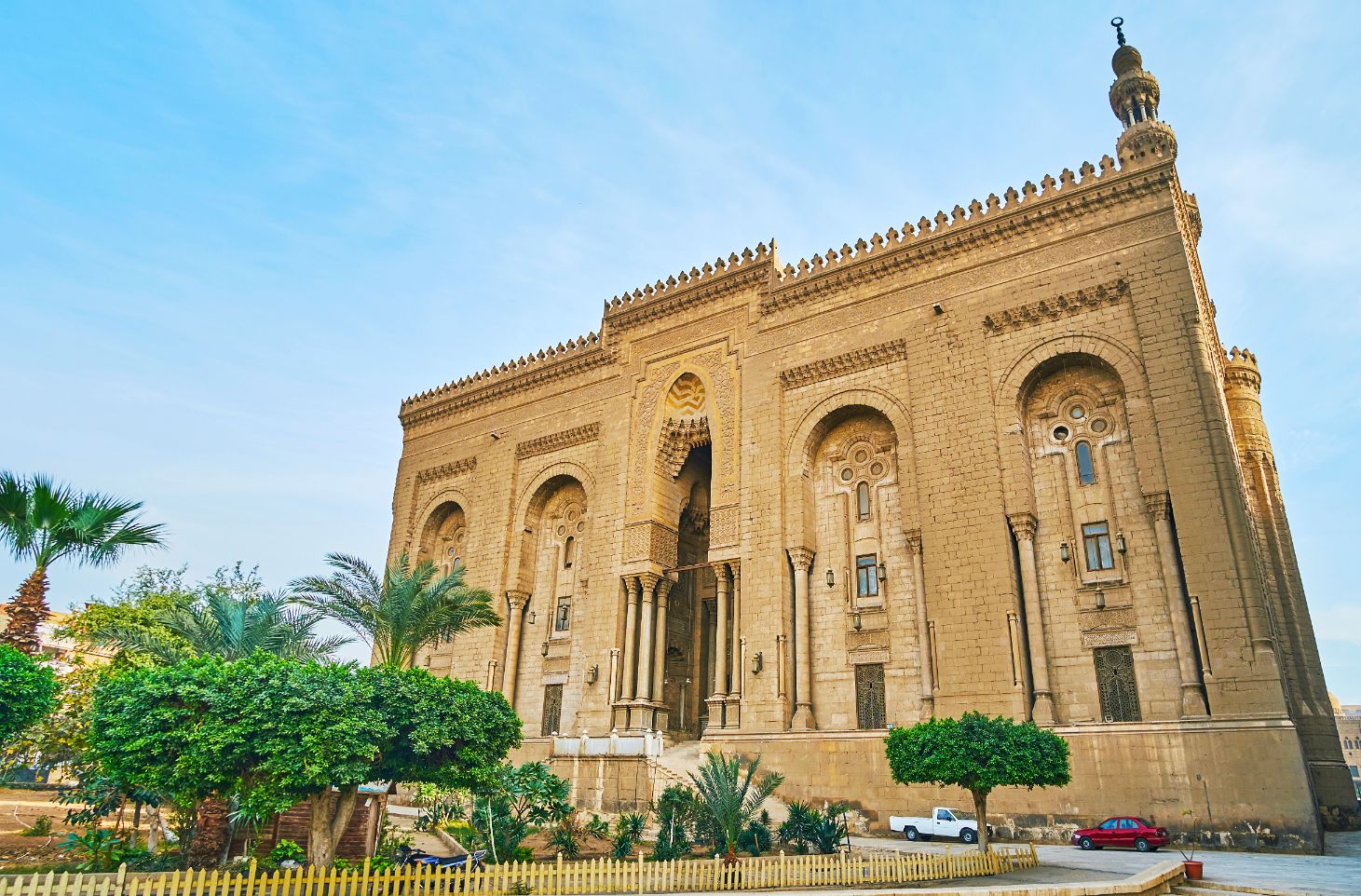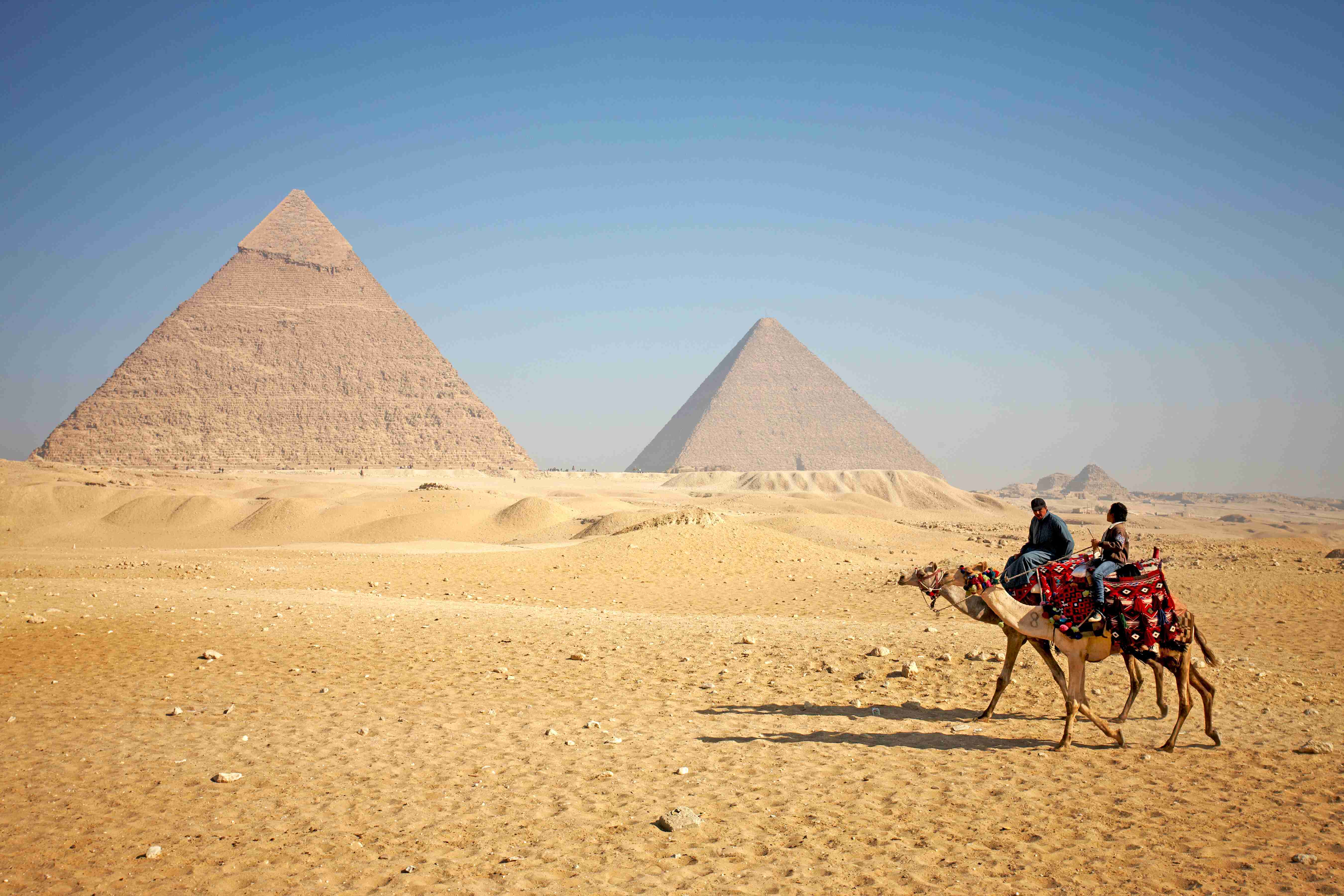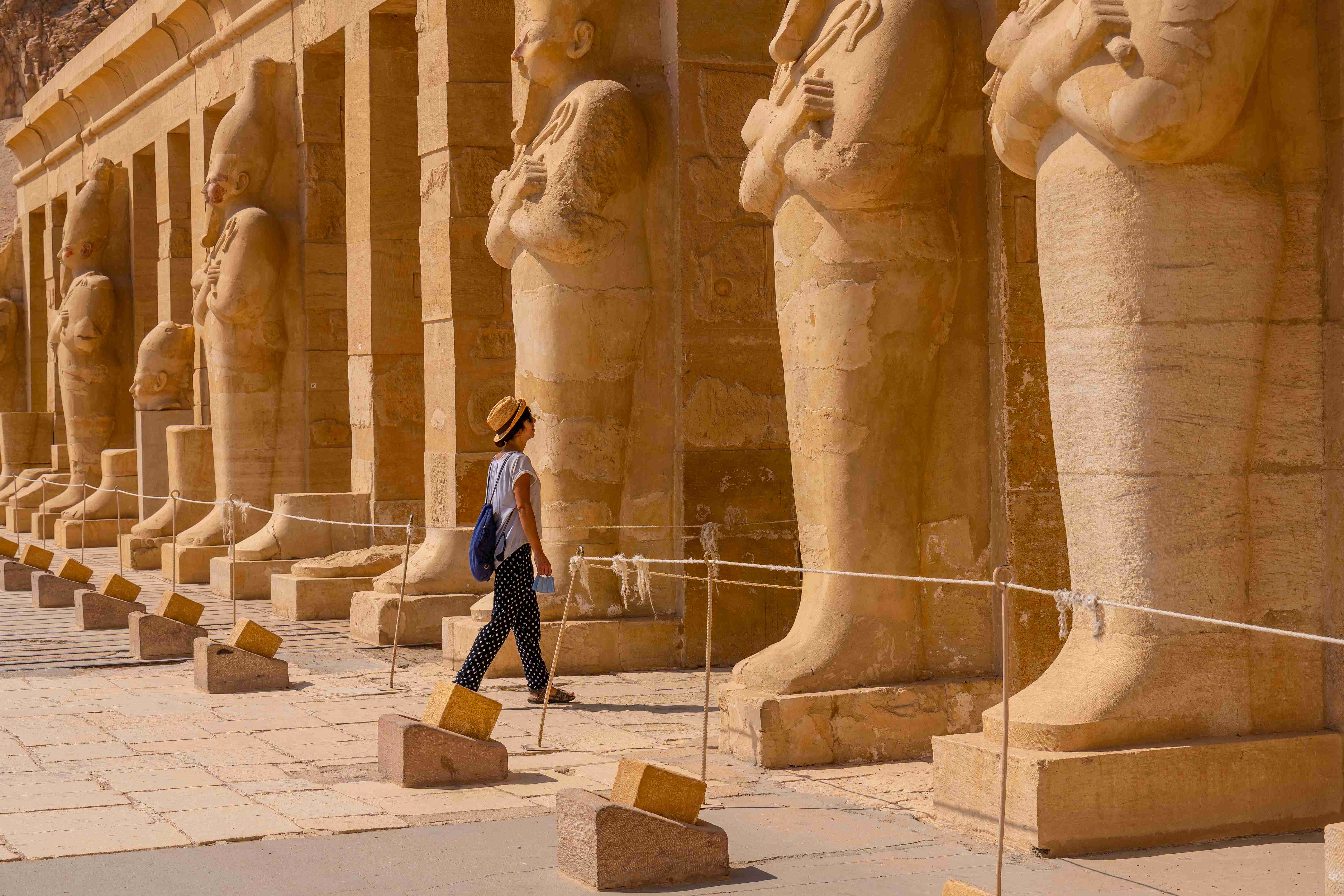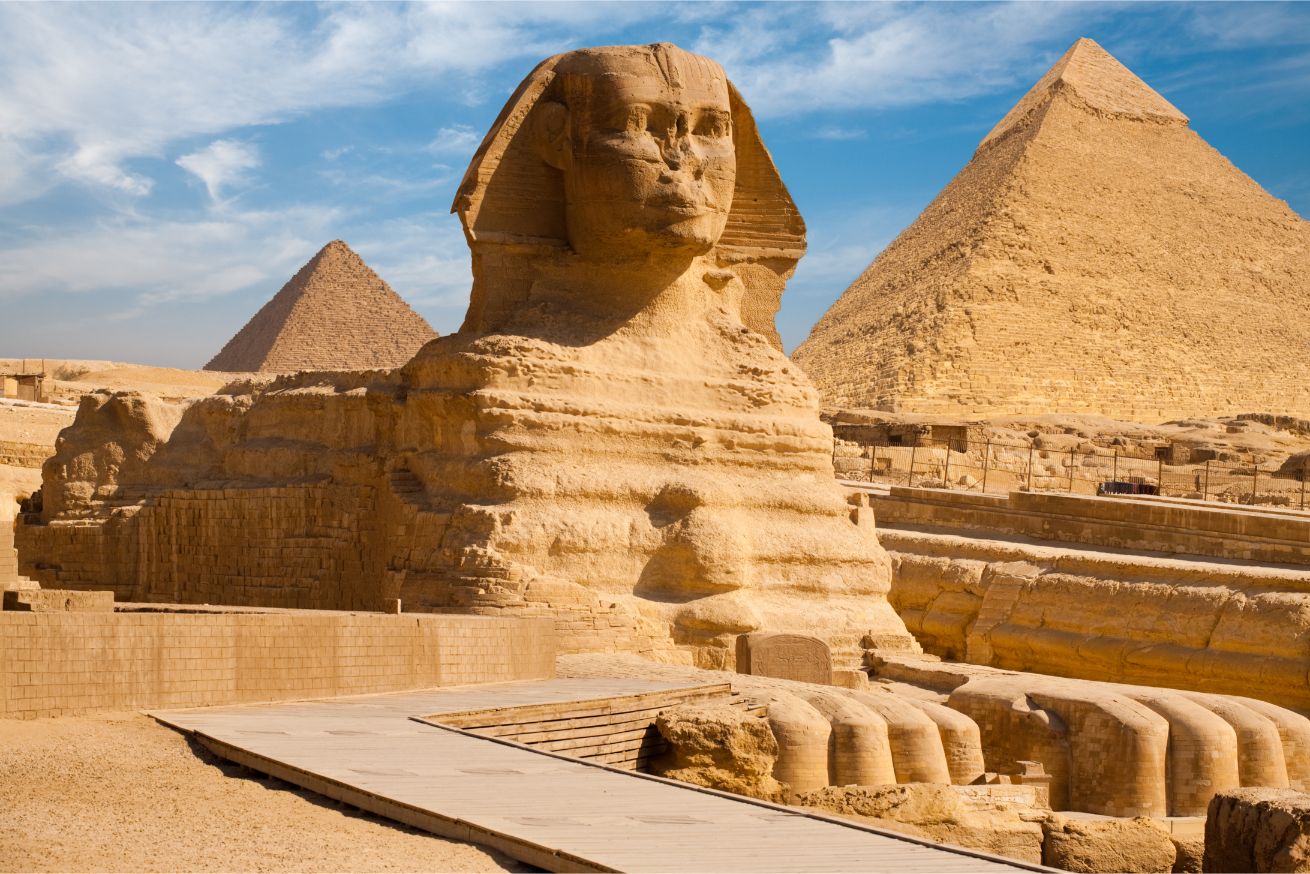
The Hidden Stories Behind Religious Holidays in Egypt You Never Knew
Explore the forgotten tales behind Egypt's religious holidays.
Many people, including Egyptians themselves, rarely uncover the deeper meanings behind their religious holidays. Yet, a stroll through Cairo’s bustling streets during these celebrations reveals customs that have been carried forward for thousands of years. Each tradition tells a story, weaving together Egypt’s ancient heritage with its vibrant present.
Egyptian holidays are more than just annual rituals; they are living reflections of history. Sacred traditions seamlessly blend the past with the present, from the mystical origins of Ramadan to unexpected Christmas celebrations along the Nile. These events preserve fascinating stories that deserve to be explored.
Ramadan, known for fasting and prayer, has roots in Pharaonic traditions, where moon cycles marked sacred times. The iconic lanterns (fawanees) originated centuries ago, illuminating Cairo’s streets during night prayers.
Egyptian Coptic Christmas on January 7 follows the ancient Julian calendar. Unique traditions, such as the special fasting period before Christmas Eve, date back to early Christian communities in Egypt.
Islamic moulids, festivals honoring saints, resemble ancient Egyptian celebrations of gods and deities. These gatherings filled with music, storytelling, and sweets connect modern Egyptians with their ancestors in ways few realize.
Beyond Cairo, regional celebrations add another layer to Egypt’s rich traditions. Whether it’s the unique rituals of Siwa’s Siyaha Festival or the Nubian-inspired feasts of southern Egypt, each holiday carries centuries-old customs that continue to shape sacred occasions today.
Egypt’s religious celebrations are more than just dates on a calendar; they are windows into the past, offering a deeper understanding of how faith, culture, and history intertwine. Join us in uncovering the hidden meanings behind these remarkable traditions.
Ancient Roots of Modern Egyptian Holidays
Egypt’s holiday calendar is a vibrant blend of ancient traditions and modern celebrations, reflecting the country's rich cultural heritage. Egyptians commemorate religious and national occasions, many of which trace their origins back thousands of years.
What are the important holidays in Egypt?
Egyptian celebrations fill the calendar year, starting with Coptic Christmas on January 7th. Unlike Western Christmas traditions, Orthodox Christians in Egypt observe their own customs, reflecting the region's deep Christian heritage.
One of the oldest celebrations is Sham El-Nessim, observed on the Monday after Coptic Easter. This ancient spring festival predates both Christianity and Islam, connecting modern Egyptians to their pharaonic ancestors. More importantly, it unites people of all faiths, symbolizing Egypt’s cultural harmony.
In July, Wafaa El-Nil pays tribute to the Nile’s historic importance. In ancient times, it marked the river’s annual flooding, which sustained Egyptian civilization. While modern irrigation has altered the Nile’s natural cycles, Egyptians continue to honor this tradition through cultural performances and educational activities that highlight its significance.
The Islamic calendar adds spiritual depth with Eid al-Fitr and Eid al-Adha. Eid al-Fitr marks the end of Ramadan with three days of joyous celebrations, featuring special meals and gift-giving. Later in the year, Eid al-Adha commemorates Prophet Ibrahim’s devotion with five days of festivities. Families come together, prepare traditional dishes like Fatteh, and strengthen community bonds.
Egypt’s national holidays carry deep historical significance. Armed Forces Day on October 6th honors the country’s military heritage with grand parades and patriotic displays. Victory Day on October 24th commemorates Egypt’s triumph in the 1973 Arab-Israeli War, bringing the nation together in remembrance.
The year concludes with Suez Victory Day on December 29th, marking Egypt’s resilience during the 1956 Suez Crisis. This day serves as a reminder of the nation's strength, unity, and determination.
Hidden Meanings Behind Islamic Holiday Traditions
Islamic celebrations in Egypt hold deep spiritual significance, preserving sacred traditions that are passed down through generations. The Islamic calendar shapes the rhythm of Egyptian life, marking special observances that bring communities together throughout the year.
What are some Traditions in Egypt?
Arafat Day reflects the deep spiritual essence of Egypt’s Islamic traditions. Observed on the day before Eid al-Adha, it is a time for heartfelt prayers and quiet reflection, as believers seek spiritual growth in preparation for the upcoming feast.
Eid al-Adha embodies the spirit of sacrifice and community. Families come together to perform the ritual sacrifice, honoring Prophet Ibrahim’s unwavering devotion. Traditional dishes, such as Fatteh, are lovingly prepared and shared, strengthening family bonds and spreading joy.
The Islamic New Year marks a time of renewal and self-reflection. Muslims engage in prayer, set personal goals, and embrace acts of kindness and compassion, fostering a sense of unity within their communities.
Mawlid al-Nabi, the celebration of Prophet Muhammad’s birthday, highlights Egypt’s rich Islamic heritage. Streets come alive with colorful decorations, families exchange sweet treats, and religious gatherings resonate with spiritual songs and stories from the Prophet’s life.
Ramadan in Egypt is a unique blend of devotion and cultural celebration. As the sun sets, streets buzz with energy as families gather to break their fast. Evening prayers hold special significance, bringing communities together in spiritual reflection.
Every Islamic celebration reinforces values of generosity and unity. Egyptians ensure that everyone can partake in the festivities by giving to charity, strengthening bonds between families and neighbors.
A cherished tradition during Eid is Eidiya, the custom of giving money to children. This joyful practice spreads happiness across generations, as families visit one another, exchange well wishes, and celebrate together—making these traditions an integral part of Egypt’s cultural identity.
Unexpected Origins of Egypt's Most Beloved Holidays
Modern festivities in Egypt are deeply rooted in the ancient Egyptian calendar. Archaeological discoveries and historical texts reveal the enduring legacy of the country’s most cherished celebrations.
One of the earliest royal festivals, the Sed Festival, marked a pharaoh’s 30th year of rule. These grand ceremonies featured spectacular processions, athletic competitions, and rituals that symbolized the ruler’s enduring strength. Many aspects of these ancient traditions continue to influence Egypt’s national celebrations today.
The Opet Festival once drew thousands of worshippers who walked the sacred path between Karnak and Luxor temples. Even today, Egyptians gather for religious processions along these same historic routes, preserving a deep connection to their ancestors.
The Beautiful Festival of the Valley honored the departed souls of the Valley of the Kings. Today, Egyptians maintain this tradition through memorial practices that strengthen their bonds with lost loved ones.
The Wep-Wadjet Festival paid tribute to the protective goddess Wadjet, focusing on themes of healing and protection. These values remain central to Egyptian celebrations, where prayers for safety and well-being continue to hold great significance.
The Akhet Festival celebrated the annual flooding of the Nile, which was vital for ancient agriculture. While modern irrigation has altered the river’s natural patterns, the legacy of this festival lives on through Wafaa El-Nil, a celebration that highlights the Nile’s historical importance through cultural performances and educational events.
Sham El-Nessim, a spring festival with pharaonic origins, transcends religious boundaries and unites Egyptians of all faiths. Families uphold age-old traditions by sharing symbolic foods like colored eggs and salted fish—customs that have endured for thousands of years.
With the spread of Christianity, Coptic festivals incorporated elements of ancient Egyptian traditions. Later, Islamic celebrations added new layers to Egypt’s rich cultural tapestry. These ancient threads continue to weave through modern life, creating a unique blend where history and tradition seamlessly merge.
Regional Holiday Variations Across Egypt
Egyptian holiday celebrations weave a rich tapestry of traditions, each unique to its region. From the bustling streets of Cairo to the tranquil shores of Aswan, every area brings its own distinct flavor to religious and cultural festivities.
What does Egypt do for Christmas?
Coptic Christmas brings Egypt to life with unique local traditions every January 7th. In Cairo, families flock to Al-Azhar Park and Family Park, enjoying the festive spirit in lush green surroundings. The city's historic neighborhoods come alive as visitors explore Islamic monuments on Al-Muizz Street, immersing themselves in the cultural charm of the season.
In Upper Egypt, Christmas celebrations blend seamlessly with ancient traditions. Orthodox Christians attend midnight mass and gather for festive feasts featuring traditional dishes. Their Muslim neighbors often join the celebrations, reflecting Egypt’s enduring interfaith harmony.
Alexandria’s coastal
Alexandria’s coastal setting adds a special touch to the holiday atmosphere. The city’s historic churches hold special services, while families stroll along the Mediterranean promenade, sharing holiday treats and making cherished memories.
Across the Nile Valley, communities celebrate national holidays with vibrant cultural displays. On National Day (August 15th), each region showcases its local heritage through music, dance, and traditional crafts, adding unique regional flavors to patriotic festivities.
Islamic holidays
Islamic holidays also highlight Egypt’s regional diversity. In Cairo, Eid al-Fitr brings spectacular nightlife along the Nile, with restaurants and hotels hosting grand celebrations. Meanwhile, rural areas embrace a more intimate atmosphere, focusing on family gatherings and age-old customs.
In the Delta region, Sham El-Nessim is celebrated with unmatched enthusiasm. Families gather in lush green fields to enjoy colored eggs, salted fish, and spring picnics, following a tradition that dates back to pharaonic times.
Sinai region
The Sinai region adds its own significance to national celebrations. On Sinai Liberation Day (April 25th), local communities organize commemorative events alongside military parades, honoring the region’s historical resilience.
New Year’s Eve celebrations vary across Egypt. In major cities, dazzling fireworks and modern festivities light up the night, while rural communities prefer quieter, family-centered gatherings with cultural performances.
How do we celebrate the holidays in Egypt?
Egyptian holidays offer a rich tapestry of experiences, allowing you to immerse yourself in the country’s deep cultural heritage. Each celebration provides a unique way to connect with tradition—whether through ancient landmarks or modern festivities—creating lasting memories for both locals and visitors alike.
Celebrating Holidays in Egypt is a unique experience
Holiday celebrations in Cairo’s historic districts pulse with energy, blending tradition with modern festivity. The Grand Egyptian Museum serves as a magnificent backdrop for cultural events, linking today’s celebrations with Egypt’s ancient past.
Traditional foods play a central role in these occasions. During Eid al-Adha, the rich aroma of Fatteh fills homes as families gather for shared meals. Eid al-Fitr brings its own sweet delights, with freshly baked biscuits and petit fours adding a special touch to the festivities.
As night falls, Cairo’s cityscape comes alive, especially along the banks of the Nile. The river provides a stunning setting for evening celebrations, while restaurants and hotels host lively events. The city’s streets buzz with music and joy, creating a truly enchanting atmosphere.
Cultural traditions seamlessly intertwine with religious observances. Muslims gather in mosques for special prayers before visiting loved ones to exchange warm greetings. The cherished tradition of giving Eidiya monetary gifts to children spreads happiness and excitement among young celebrants.
Al-Muizz Street transforms into a cultural hotspot during holidays. Lined with stunning Islamic monuments, this historic thoroughfare allows visitors to experience centuries of Egyptian heritage while enjoying modern festivities.
Egyptian celebrations reflect a deep commitment to preserving traditions while embracing new ways to express joy and gratitude. These cherished holiday experiences create lasting memories, strengthening bonds across generations and communities throughout this ancient land.
Religious holidays in Egypt tell stories that span thousands of years, blending ancient wisdom with modern festivities in a seamless celebration of heritage.
During holiday seasons, Egypt’s streets come alive with joy and togetherness, strengthening family bonds and deepening community connections. These cherished traditions are more than spiritual observances; they serve as a bridge between past and present, uniting people in ways that transcend time.
Looking for the perfect time to visit Egypt? Experience the country's vibrant soul by joining us for an unforgettable holiday adventure. Our exclusive holiday packages offer you a front-row seat to Egypt’s most treasured celebrations. From the joyous feasts of Eid to the colorful traditions of Sham El-Nessim, we’ll guide you through an authentic cultural journey.
Imagine sharing a home-cooked meal with welcoming families, witnessing age-old rituals firsthand, and immersing yourself in the energy of true Egyptian celebrations. This isn’t just a vacation; it’s a deep cultural experience, a chance to create lasting memories beyond the usual tourist sights.
Join us and discover the real Egypt, where every holiday is a tapestry of tradition, warmth, and unforgettable moments.
Related Articles

What makes the Great Pyramid unique?
If you're a history enthusiast or simply an avid traveler, then exploring the Great Pyramid in Egypt is an experience that should be on your bucket list. As one of the Seven Wonders of the Ancient World, the Great Pyramid stands as a testament to the incredible architectural prowess of the ancient Egyptians and their fascination with the afterlife. In this article, we'll delve into the fascinating history and significance of the Great Pyramid, as well as provide practical tips for visiting this awe-inspiring monument in the land of the pharaohs. So get ready to embark on a virtual journey and discover the wonders of the Great Pyramid!

Uncover the Ancient Egypt Treasures
Where the Past Comes to Life. Egypt is frequently regarded as the birthplace of civilization because of its majesty and mystique. With fascinating stories of pharaohs, colossal structures, and unimaginable wealth, it has a rich history spanning thousands of years. The wonders of ancient Egypt that have enthralled tourists for centuries will be revealed on this voyage for those who wish to visit the top archaeological sites in Egypt.

Mysteries of the Sphinx between Myths and Facts
What secrets does the Sphinx still hold? Join us as we unravel fact from myth, exploring the fascinating stories behind one of history’s most enigmatic monuments.
